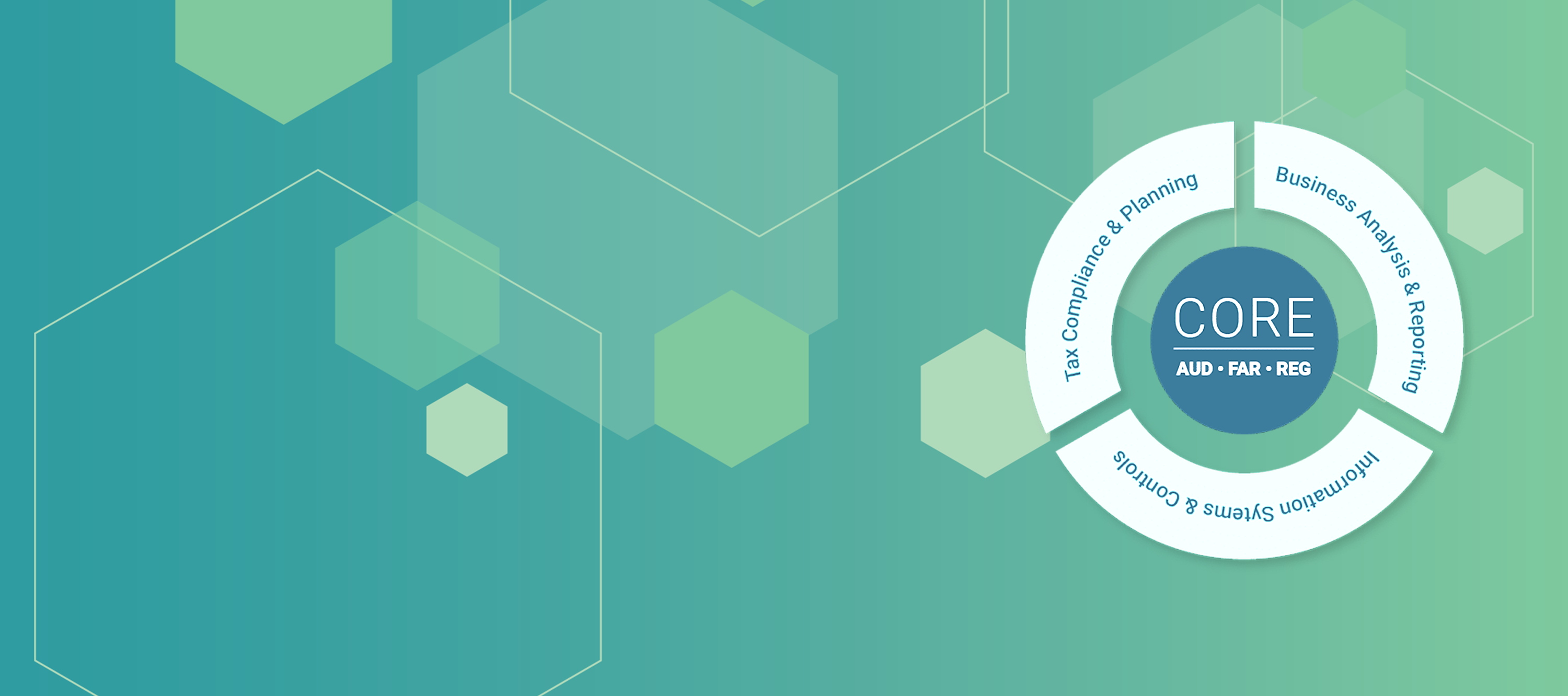CPA Exam Review
Our adaptive learning technology helps you pass the CPA Exam faster and with more confidence.
Not just a game changer…
a life-changer
CPAs serve as tax, accounting, and financial planning advisers, and are esteemed, strategic industry consultants. Begin your path to CPA certification with Surgent. When it comes to Surgent success, our numbers add up.
Courses that deliver
Whether you’re looking for the basics or want every tool at your disposal, we have plans that fit every learning style and student.
Ultimate Pass
- A.S.A.P.® Technology
- ReadySCORE™ Exam-Readiness Indicator
- MyMCQ™ Study Content Optimizer
- Study Companion App
- 8,800+ MCQs
- 450+ simulations
- E-books and lecture study notes
- Desktop, mobile app and tablet compatible
- Unlimited practice exams
- Unlimited access until you pass
- 700+ videos
- Lecture Study Notes
- Pass Guarantee
- Printed textbooks for all 6 sections
- Spiral-bound flashcards for all 6 sections
- One-on-one coaching with a CPA exam expert
- Integrated test bank with 1,000 extra MCQs
- Audio lectures
- Ultimate customer support
- 1 Year CPE subscription ($899 value)
- Accounting and Finance Professionals ($249 value)
- Data Analytics with Power Query: Mastering ETL Skills ($299 value)
- New Data Analytics Roles ($299 value)
- 1 Year Gamified Learning Access (16+ games, $780 value)
Premier Pass
- A.S.A.P.® Technology
- ReadySCORE™ Exam-Readiness Indicator
- MyMCQ™ Study Content Optimizer
- Study Companion App
- 8,800+ MCQs
- 450+ simulations
- E-books and lecture study notes
- Desktop, mobile app and tablet compatible
- Unlimited practice exams
- Unlimited access until you pass
- 700+ videos
- Lecture Study Notes
- Pass Guarantee
Essentials Pass
- A.S.A.P.® Technology
- ReadySCORE™ Exam-Readiness Indicator
- MyMCQ™ Study Content Optimizer
- Study Companion App
- 8,800+ MCQs
- 450+ simulations
- E-books and lecture study notes
- Desktop, mobile app and tablet compatible
- Unlimited practice exams
- 30 months of course access
- 400+ videos
Complete features |
Ultimate Pass |
Premier Pass |
Essentials Pass |
|---|---|---|---|
| A.S.A.P.® Technology | |||
| ReadySCORE™ Exam-Readiness Indicator | |||
| MyMCQ™ Study Content Optimizer | |||
| Study Companion App | |||
| 8,800+ MCQs | |||
| 450+ simulations | |||
| E-books and lecture study notes | |||
| Desktop, mobile app and tablet compatible | |||
| Unlimited practice exams | |||
| Unlimited access until you pass | |||
| 700+ videos | |||
| Lecture Study Notes | |||
| Pass Guarantee | |||
| Printed textbooks for all 6 sections | |||
| Spiral-bound flashcards for all 6 sections | |||
| One-on-one coaching with a CPA exam expert | |||
| Integrated test bank with 1,000 extra MCQs | |||
| Audio lectures | |||
| Ultimate customer support | |||
| 1 Year CPE subscription ($899 value) | |||
| Accounting and Finance Professionals ($249 value) | |||
| Data Analytics with Power Query: Mastering ETL Skills ($299 value) | |||
| New Data Analytics Roles ($299 value) | |||
| 1 Year Gamified Learning Access (16+ games, $780 value) | |||
| 30 months of course access | |||
| 400+ videos |
“The high-energy lectures were clear, precise, and [they] addressed every topic on the actual exams. I would have never passed the exam if it wasn’t for the incredible instructors.”
— Martina F @ Deloitte
Courses for everyone

Individuals
We provide students with unique prep courses for all major accounting credentialing exams, including the CPA exam.

Businesses
Firms and corporations leverage our CPA exam solutions to up skill their staff at every stage of their careers.

Colleges & Universities
Over 300 colleges and universities partner with us to prepare their accounting and finance students for success.
FEATURES
The Surgent difference
There are many CPA Exam Review courses, but only one with our reputation for excellence.
A.S.A.P.® Technology delivers faster results
Our powerful, adaptive software creates a study plan customized to your needs and based on your strengths and weaknesses. Skip what you know, study what you don’t — and pass faster.
ReadySCORE™ tells you when it’s time
ReadySCORE forecasts your score on the CPA Exam in real time, so you’ll sit for the Exam with confidence. Your results are updated and shown as you progress through your studies. That means you will know exactly when you’re exam ready.
Surgent Exam Review is so effective we guarantee you’ll pass.
The Surgent advantage
The CPA Exam is challenging, but 92% of Surgent
students pass — nearly twice the national average!
Featured CPA Review resources
Surgent’s unique features
EMPOWERED BY EXPERTS
Meet our instructors
Becoming a Certified Public Accountant (CPA) is a recognized achievement for accounting and finance professionals. Our Instructors will help you meet your goals.

John “Jack” Castonguay, PhD, CPA

Liz Kolar, CPA, CGMA Executive Vice President, Surgent

Ellen Rackas, MBA, CPA

Charlene Rhinehart, CPA
QUICK LINKS
Surgent empowers students





We partner with colleges and universities to help students meet — and exceed — their career goals.

Our semiannual scholarship is open to any currently enrolled business students working toward an accounting or finance major at an accredited college or university within the United States.

Education is an investment. We offer students several ways to pay.

We make it easy and affordable for you to switch to the best exam prep course available. We want you to succeed – earn your credential faster and easier with Surgent, and enjoy great savings when you switch!









